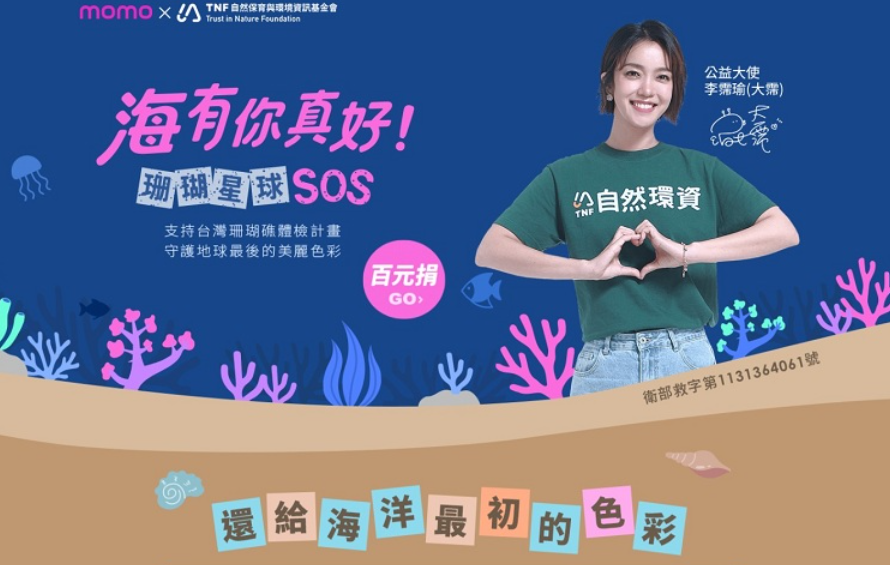作者 TEIA台灣環境資訊協會
厄瓜多總統柯雷亞(Raphael Correa)批准了一項協議,將停止開採厄瓜多蘊藏最豐富、位於葉蘇尼國家公園(Yasuni National Park)地底下相當於9億桶的原油,用以交換超過30億美元的信託基金。

這項史無前例的協議,被稱為葉蘇尼-ITT協議,政府將不再開發位於亞馬遜雨林公園中的義思平哥-坦伯可加-提普帝尼(Ishpingo-Tambococha-Tiputini, ITT)地區的石油,科學家指稱這裡是南美生物多樣性最高的地區。
這項原本於去年12月聯合國哥本哈根氣候高峰會就要簽訂的協議,牽涉到厄瓜多與聯合國發展計畫之間要成立一個信託基金,以接受對葉蘇尼-ITT協議的捐款,但在最後一刻時,科雷亞總統指示他的談判代表,在幾個癥結尚未解決前停止簽署。
總統的葉蘇尼-ITT協議談判委員會主委芭姬(Ivonne Baki)說,現在所有問題都已解決,協議將在一周到10天內簽定。
芭姬是厄瓜多前任駐美大使,在接受ENS採訪時表示,哥本哈根會議中的信託基金協議必須調整已獲得總統的批准。她說:「我們必須成立國際基金,以獲得各國的捐款。不過該基金的成立與原本告知總統的內容有出入,與先前討論的不同。」她說。「他不得不改變其中一部分內容。」
協議中原先的「捐贈者」一詞科雷亞總統並不滿意,應該要用「貢獻者」才對。
「厄瓜多與其他國家一樣,都是貢獻者,」芭姬說。
此外,科雷亞總統堅持,厄瓜多在信託基金理事會中必須要佔多數席次。根據修訂後的協議,將有三名理事會成員來自厄瓜多爾,兩名來自其他貢獻國家,以及一名原先版本中所沒有的民間代表。
根據修訂後的協議版本,如果可行,決議事項將以共識決為主,否則將採多數決。芭姬說。
使簽訂的協議正確完整是十分重要的,芭姬說,因為它將是其他厄瓜多後進國家的一個先例。
「我們是個藏有石油的高生物多樣性發展中國家,而我們不打算開採,」她說,「想像一下,我們可以就此對世界做出貢獻。這是另一種不同的永續發展。」
「我們很需要全世界都知道葉蘇尼公園,」芭姬說,一些娛樂圈內的大牌人士已經向她保證,他們將支持並幫忙宣傳葉蘇尼-ITT協議。
芭姬說,「他們用他們的名聲並且在道義上支持我們,使我們可以讓世界知道葉蘇尼。」
美國前副總統,諾貝爾和平獎得主高爾將於11月在厄瓜多舉行保育研討會,她說。
「一旦你到了那裡,你會覺得好像見到了上帝,」她說。
多年以來,世界各地的保育人士與當地原住民社區都在呼籲保護葉蘇尼公園。「我們的孩子長大後會怎樣?他們老的時候會住在哪裡?我們有寧靜的河流,我們的森林提供我們食物、藥品與一切所需。當石油公司把我們所有的都毀掉以後,我們會怎樣?」瓦拉尼(Waorani)社區的民眾在2005年7月寫信給厄瓜多總統。
為了讓這個地方免除石油的開採,厄瓜多將依照協議對貢獻者發行葉蘇尼證券,保證這大約價值60億美金,9億桶的原油會永遠留在地底下。
這一紙證券的價值相當於減少數以噸計的二氧化碳排放量。
「這是一份可協商的證券,沒有利息、不會過期,也沒有到期日,協議本身是永久的,只有在厄瓜多政府決定開始在ITT區域開採並生產石油時贖回,」厄瓜多政府在網站上如此表示。
對葉蘇尼-ITT信託基金的捐款將來自兩個主要來源:自願捐款以及在碳市場的交易。
自願捐款的來源包括:各國政府、國際或多邊組織、社會民間團體、私人企業以及全世界的公民。
President Raphael Correa now has approved an agreement to leave Ecuador’s largest oil reserves, amounting to some 900 million barrels, underground in Yasuni National Park in exchange for more than $3 billion.
Under the unprecedented agreement, known as the Yasuni-ITT Initiative, the government of Ecuador will refrain from exploiting the Ishpingo-Tambococha-Tiputini oil field within the Amazon rainforest park, which scientists have determined to be the most biodiverse area in all of South America.
The agreement between Ecuador and the United Nations Development Programme creating a trust fund to receive donations to the Yasuni-ITT Initiative was nearly signed in December at the UN climate summit in Copenhagen, but at the last minute, President Correa instructed his negotiators to hold back until several sticking points were resolved.
Now, those issues are settled and the agreement will be signed within the next week to 10 days, according to Ivonne Baki, who now heads the president’s negotiations committee for the Yasuni-ITT Initiative.
Baki, a former Ecuadoran ambassador to the United States, told ENS in an interview that the trust fund agreement presented in Copenhagen needed changes to gain presidential approval. “In order for us to get the money from countries, we needed to have an international fund. But that fund was set up not as the president was told it would be, not according to discussions before,” she said. “He had to change some of those things.”
The agreement now refers not to “donors,” a term President Correa found unsatisfactory, but to “contributors.”
“Ecuador is a contributor, other countries are also contributors,” Baki said.
In addition, President Correa insisted that Ecuador have a majority on the trust fund board of directors. Under the revised agreement, there will be three board members from Ecuador, two board members from contributing countries, and one position representing civil society that was not there in the previous version.
Under the revised agreement, decisions will be reached by consensus if possible, but if that is not possible, by majority, Baki said.
Getting the agreement right is very important, said Baki, because it could be an example to be followed by other countries in the same position as Ecuador.
“A biodiverse developing country that has oil underneath that we don’t want to touch,” she said, “Imagine, we could contribute this to the world. This is a different kind of sustainable development.”
“Really we need Yasuni to be known all over the world,” said Baki, and she has assurances from some of the biggest names in the entertainment world that they will support and help to publicize the Yasuni-ITT Initiative.
Baki said, “They are lending their names and the moral support that we need to make Yasuni known in the world.”
Former U.S. Vice President and Nobel Peace Laureate Al Gore will come to Ecuador in November to give a conservation conference, she said.
“Once you have been there, you feel you have seen God,” she said.
For years, conservationists around the world and indigenous communities who live in the park have been urging protection of Yasuni. “What will happen when our children grow up? Where will they live when they are older? Our rivers are tranquil and in the forests we find the food, medicines and other necessities that we need. What will happen when the oil companies finish destroying what we have?” Waorani community members wrote to the President of Ecuador in July 2005.
To “keep this place” free of oil development, Ecuador will issue Yasuni Guarantee Certificates to contributors to the Initiative, as a guarantee that an estimated 900 million barrels of oil, worth US$6 billion will remain in the ground for an indefinite time period.
The value of the certificates will be a multiple of the metric tons of avoided carbon dioxide emissions.
“This is a negotiable instrument that does not earn interest and does not have an expiration or maturity date, since the guarantee is in perpetuity and will be redeemed only in the event that the Ecuadorian government decides to start the oil exploration and production within the ITT fields,” the government of Ecuador says on its website.
The donations to the Yasuni-ITT Trust Fund will come from two main sources – voluntary contributions and transactions in the carbon market.
The voluntary contributions can come from governments of countries, international or multilateral organizations, civil society organizations, private sector companies, and citizens worldwide.




